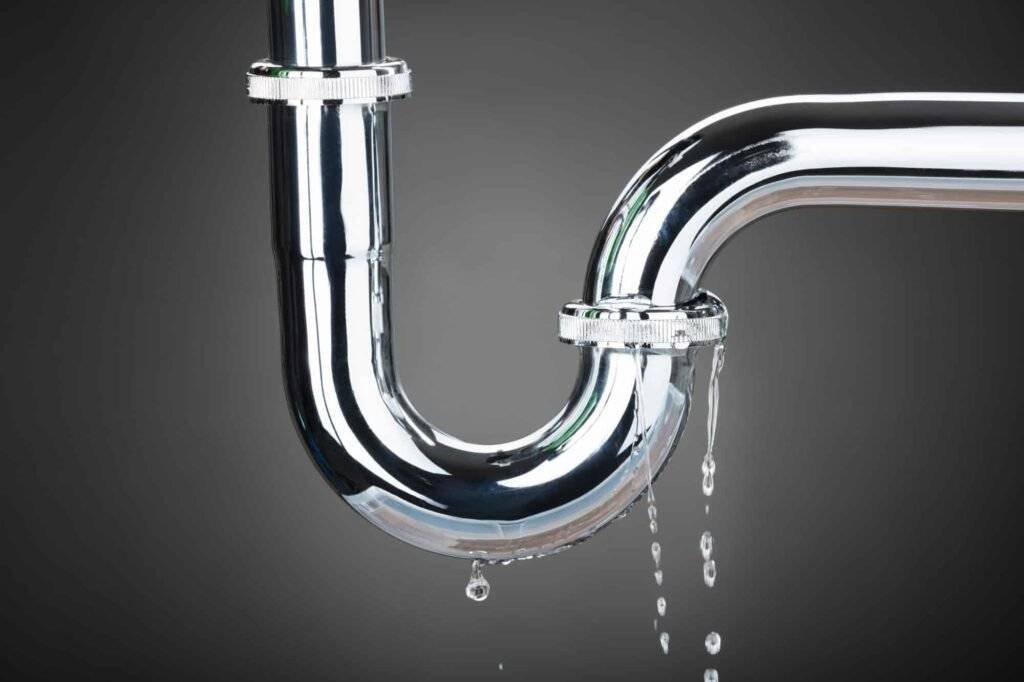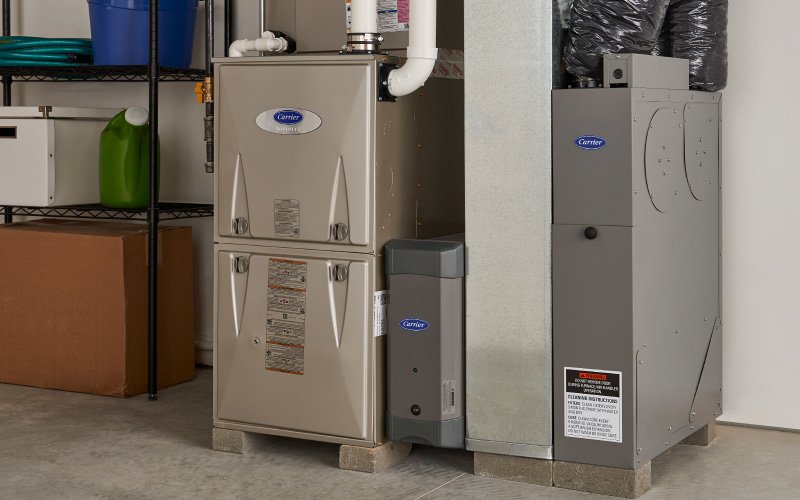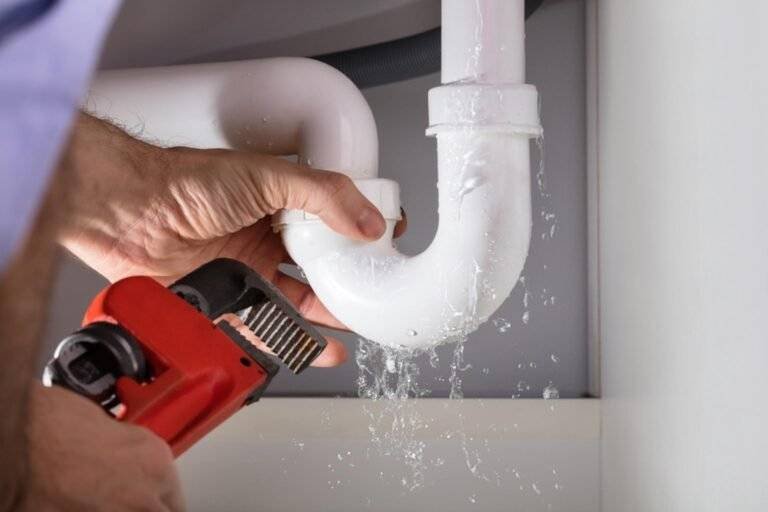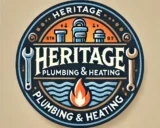Heritage Plumbing & Heating -- Premier Plumbing and Heating Contractor
Heritage Plumbing & Heating is the premier pipes & heating services business in Namao, understood for its unmatched experience and dedication to client satisfaction. Our group of qualified and experienced plumbings takes care of everything from routine maintenance to emergency repair services with precision and treatment. We utilize the most recent innovation and high-grade products to guarantee lasting options for all your pipes & heating needs. Our transparent prices, reliable service, and dedication to excellence have earned us the trust of plenty of home owners in the Namao area. Pick Heritage Plumbing & Heating for punctual, professional, and courteous service that establishes the standard in the market.



Common Plumbing Issues & How to Avoid Them
Plumbing problems can disrupt your daily life, leading to significant inconvenience and costly repairs. Understanding common issues and how to prevent them can save you both time and money. Here are five frequent plumbing problems and tips to avoid them.
1. Leaky Faucets
A dripping faucet is not just annoying but can also waste a substantial amount of water. Over time, this can lead to higher utility bills and water damage.
Prevention Tips:
- Regular Maintenance: Periodically check faucets for wear and tear. Replace worn-out washers and gaskets.
- Avoid Over-tightening: When turning off a faucet, avoid excessive force. Over-tightening can damage components, leading to leaks.
- Prompt Repairs: Fix leaks as soon as they are noticed. Delaying repairs can exacerbate the problem and cause more significant damage.
2. Clogged Drains
Clogged drains are a common issue, often caused by hair, soap, grease, and food particles accumulating over time. They can cause water backups and unpleasant odors.
Prevention Tips:
- Use Drain Screens: Install screens over drains to catch hair and debris before they cause blockages.
- Proper Disposal: Avoid pouring grease down the drain. Instead, dispose of it in a container and throw it in the trash.
- Regular Cleaning: Periodically clean drains using natural solutions like baking soda and vinegar. Avoid using harsh chemicals, which can damage pipes.
3. Running Toilets
A running toilet can waste a significant amount of water, leading to increased utility bills. This issue is often caused by a faulty flapper valve, fill valve, or overflow tube.
Prevention Tips:
- Inspect Components: Regularly check the flapper valve and fill valve for wear and tear. Replace them if necessary.
- Adjust the Float: Ensure the float is at the correct level to avoid constant refilling.
- Test for Leaks: Add a few drops of food coloring to the toilet tank. If the color appears in the bowl without flushing, there is a leak that needs addressing.
4. Low Water Pressure
Low water pressure can make simple tasks like showering or washing dishes frustrating. It is often caused by mineral build-up in pipes, leaks, or problems with the municipal water supply.
Prevention Tips:
- Clean Aerators: Regularly remove and clean faucet aerators to prevent mineral deposits from building up.
- Check for Leaks: Inspect pipes for any signs of leaks, as they can reduce water pressure.
- Water Softener: If you live in an area with hard water, consider installing a water softener to reduce mineral build-up.
5. Water Heater Issues
Problems with water heaters, such as no hot water or strange noises, can result from sediment build-up, faulty thermostats, or worn-out heating elements.
Prevention Tips:
- Regular Maintenance: Flush the water heater tank annually to remove sediment build-up. This can extend the life of the unit and improve efficiency.
- Inspect Components: Regularly check the thermostat and heating elements. Replace them if they show signs of wear.
- Temperature Settings: Keep the water heater set at an optimal temperature (120 degrees Fahrenheit) to prevent overheating and reduce wear on components.
General Tips for Preventing Plumbing Issues
- Know Your Plumbing System: Familiarize yourself with your home’s plumbing layout, including the location of the main shut-off valve.
- Regular Inspections: Conduct regular inspections of all plumbing fixtures and pipes. Look for signs of leaks, corrosion, or other issues.
- Educate Household Members: Ensure everyone in the household knows how to properly use and maintain plumbing fixtures.
- Professional Help: When in doubt, seek professional assistance. A licensed plumber can provide expert advice and repair services to keep your plumbing system in top shape.
By staying vigilant and taking preventive measures, you can avoid common plumbing problems and ensure your system operates smoothly. Remember, a little maintenance goes a long way in keeping your home’s plumbing trouble-free.
Common Heating Systems in Canada
Heating systems are vital for maintaining comfort in Canadian homes, especially during the long, harsh winters. Different types of heating systems are popular across the country, each with its unique advantages and drawbacks. Here’s an overview of the most common heating systems in Canada.
1. Furnaces
Furnaces are one of the most widely used heating systems in Canada. They operate by heating air and distributing it throughout the home via a network of ducts and vents. Furnaces can be powered by natural gas, oil, propane, or electricity.
Advantages:
- Efficiency: Modern furnaces, especially those powered by natural gas, are highly efficient, with some models boasting efficiency ratings of 95% or higher.
- Even Heating: Furnaces provide consistent, even heating throughout the home.
- Quick Warm-up: They heat up quickly, making them ideal for cold climates.
Drawbacks:
- Initial Cost: High-efficiency furnaces can be expensive to install.
- Maintenance: Regular maintenance is required to keep the system running efficiently.
2. Boilers
Boilers heat water and distribute the steam or hot water through a system of pipes to radiators, baseboard heaters, or underfloor heating systems. They can be powered by natural gas, oil, or electricity.
Advantages:
- Even Heat Distribution: Boilers provide even and comfortable heat.
- Quiet Operation: They operate more quietly than forced-air systems.
- Zoning Capabilities: Boilers can easily be set up with zoning systems, allowing different areas of the home to be heated independently.
Drawbacks:
- Slow Warm-up: Boilers take longer to heat a home compared to furnaces.
- Space: They require space for the boiler unit and associated piping.
3. Heat Pumps
Heat pumps are becoming increasingly popular in Canada due to their efficiency and dual functionality. They work by extracting heat from the outside air or ground and transferring it indoors. Heat pumps can also be used for cooling during the summer.
Advantages:
- Energy Efficiency: Heat pumps are highly efficient, using less energy compared to traditional heating systems.
- Dual Functionality: They provide both heating and cooling.
- Environmental Impact: They have a lower environmental impact, especially when powered by renewable energy sources.
Drawbacks:
- Initial Cost: Installation can be expensive.
- Effectiveness in Extreme Cold: Air-source heat pumps can be less effective in extremely cold temperatures, although newer models are improving in this regard.
4. Electric Baseboard Heaters
Electric baseboard heaters are often used as a primary heating source in smaller homes or as supplementary heat in larger homes. They operate by heating up coils within the baseboard unit, which then radiates heat into the room.
Advantages:
- Ease of Installation: They are easy to install and do not require ductwork or piping.
- Zoning: Each unit can be controlled independently, providing precise temperature control in each room.
Drawbacks:
- Operating Costs: Electric baseboard heaters can be expensive to operate, especially in areas with high electricity rates.
- Heat Distribution: They may not distribute heat as evenly as other systems.
5. Radiant Floor Heating
Radiant floor heating systems use either hot water or electric coils embedded in the floor to provide heat. This type of heating is highly efficient and provides a comfortable, even warmth throughout the room.
Advantages:
- Comfort: Provides a consistent and comfortable heat.
- Energy Efficiency: Highly efficient, especially when used with high-efficiency boilers or heat pumps.
- Aesthetic: Eliminates the need for visible heating units like radiators or baseboards.
Drawbacks:
- Installation Cost: Radiant floor heating can be expensive to install, particularly in existing homes.
- Slow Response Time: It takes longer to heat up a room compared to forced-air systems.
Conclusion
Choosing the right heating system for a Canadian home depends on various factors, including the climate, home size, budget, and personal preferences. While furnaces and boilers remain popular for their efficiency and reliability, newer technologies like heat pumps and radiant floor heating are gaining traction for their energy-saving capabilities and comfort. Understanding the pros and cons of each system can help homeowners make an informed decision that ensures warmth and comfort during the cold Canadian winters.
The Basics of Plumbing & Heating
Plumbing and heating systems are crucial components of any home, providing essential services that ensure comfort, hygiene, and convenience. While both systems operate independently, they often intersect, especially in the context of hot water supply. Understanding the basics of plumbing and heating can help homeowners maintain these systems effectively, avoid common problems, and make informed decisions about upgrades and repairs.
Plumbing Systems
1. Components and Functionality
Plumbing systems encompass a network of pipes, fixtures, and appliances designed to supply clean water for drinking, cooking, and bathing, as well as to remove wastewater. Key components include:
- Supply Lines: These pipes bring fresh water into the home from the municipal water supply or a private well.
- Fixtures: Sinks, toilets, showers, and bathtubs where water is used.
- Drainage System: A network of pipes that carry wastewater away from the home to a septic tank or municipal sewer system.
- Water Heater: Provides hot water for bathing, cooking, and cleaning.
2. Common Issues and Maintenance
Regular maintenance is vital to keep plumbing systems running smoothly. Common issues include:
- Leaky Faucets: Often caused by worn-out washers or gaskets, leading to water wastage and higher bills.
- Clogged Drains: Resulting from the buildup of hair, grease, and other debris. Preventative measures include using drain screens and avoiding pouring grease down the drain.
- Running Toilets: Typically due to faulty flapper valves or fill valves, causing continuous water flow.
- Low Water Pressure: Can be caused by mineral deposits, leaks, or issues with the municipal supply.
3. Maintenance Tips
- Regular Inspections: Check for signs of leaks, corrosion, and blockages.
- Professional Help: Hire licensed plumbers for annual inspections and major repairs.
- Proper Use: Educate household members on the correct use of fixtures to avoid damage.
Heating Systems
1. Types and Operation
Heating systems are essential for maintaining comfort during cold weather, especially in regions with harsh winters like Canada. Common heating systems include:
- Furnaces: Heat air and distribute it through ducts. They can be powered by natural gas, oil, propane, or electricity.
- Boilers: Heat water and distribute steam or hot water through radiators or underfloor heating systems. They can also use various fuel sources.
- Heat Pumps: Extract heat from the air or ground and transfer it indoors. They are efficient and can also provide cooling.
- Electric Baseboard Heaters: Use electric coils to produce heat, ideal for individual room control.
- Radiant Floor Heating: Uses hot water or electric coils embedded in floors for even heat distribution.
2. Common Issues and Maintenance
Heating systems require regular maintenance to ensure efficiency and longevity. Common issues include:
- Dirty Filters: Can reduce airflow and efficiency in furnaces and heat pumps.
- Pilot Light Problems: In gas furnaces and boilers, issues with the pilot light can prevent the system from operating.
- Thermostat Issues: Faulty thermostats can cause inconsistent temperatures or prevent the system from turning on.
- Noisy Operation: Unusual noises can indicate problems with the blower motor in furnaces or air in the boiler system.
3. Maintenance Tips
- Regular Servicing: Have heating systems inspected and serviced annually by professionals.
- Filter Replacement: Replace or clean filters regularly to maintain airflow and efficiency.
- Monitor Thermostats: Ensure thermostats are functioning correctly and replace batteries as needed.
- Check for Leaks: Inspect boiler systems for any signs of water leaks.
Integration of Plumbing and Heating
In many homes, plumbing and heating systems intersect, particularly with hot water supply:
- Water Heaters: These appliances are central to both systems, providing hot water for showers, dishwashing, and heating (in the case of boilers and radiant heating systems).
- Combination Systems: Some modern systems integrate heating and hot water supply, providing efficiency and space-saving benefits.
Conclusion
Maintaining plumbing and heating systems is critical for ensuring home comfort, efficiency, and safety. Regular inspections, prompt repairs, and understanding the basics of how these systems work can help homeowners avoid common issues and make informed decisions about upgrades and maintenance. By taking a proactive approach, you can extend the lifespan of these essential systems and ensure they operate efficiently year-round.
Explore Plumbing Superiority
Contact Rapid Repair Plumbers in Namao for specialist guidance, prompt & reliable service, and affordable prices.
Why Choose Us?

Selecting Rapid Repair Plumbers for your pipes assistance vows experience, integrity, and impressive client treatment. Our group of licensed master plumbers bestows decades of acumen and customized knowledge to each and every project, ensuring that even the most complicated pipes issues are fixed effectively and efficiently. Whether it’s a minor leak, a significant repair work, or a new installment, we utilize state-of-the-art equipment and the most recent strategies to supply high-grade results.
Consumer fulfillment is our top concern. We provide punctual and reliable service, comprehending that pipes problems can interrupt your daily regimen and require prompt focus. Our dedication to transparency means you’ll receive detailed explanations and fair, competitive prices with no concealed costs.
Rapid Repair Plumbers also focus on preventative maintenance to assist you avoid future issues, saving you time and money in the future. Our extensive approach guarantees that your pipes system operates smoothly, giving comfort and convenience.
Along with our technological proficiency, our friendly and professional team are dedicated to making your experience as seamless as possible. We’re always offered to address concerns and supply guidance, ensuring you feel confident and informed about the work being done.
Pick Rapid Repair Plumbers for unequaled service, experience, and client treatment.
Discover Unparalleled Plumbing Expertise
Contact Heritage Plumbing & Heating in Namao for specialist advice, timely & reliable service, and fair prices.
Other Areas We Service
Carbondale, Lancaster Park, Saint Albert, Bon Accord, Morinville, Beverly, Edmonton, Fort Saskatchewan, Sherwood Park, Strathcona
